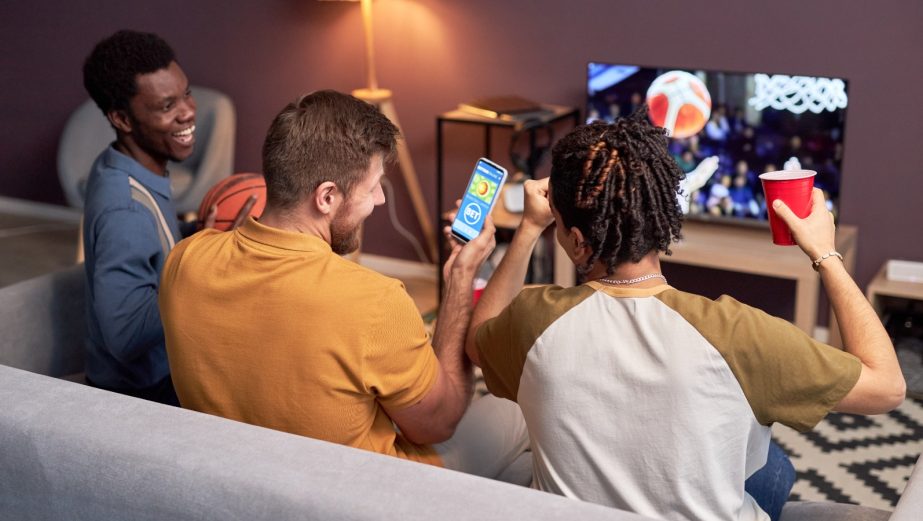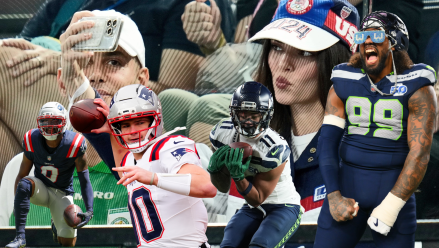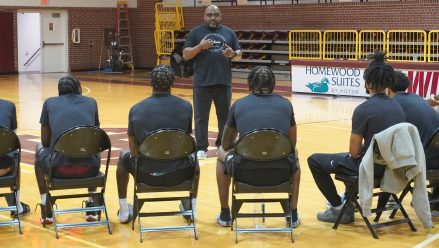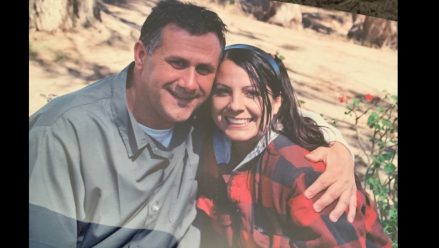For many, the road out of gambling addiction can feel uncertain.
But for some people struggling with gambling addiction, seeing that others have found a way out can be the exact kind of lifeline they need.
Josh Hampton is one person who found hope and recovery in an approach that relied not on clinicians, but on people who had walked the same path of gambling addiction themselves.
He’s a peer support specialist with the Sunrise Community for Recovery and Wellness, meaning that he is trained to provide support, shaped by his own recovery experience, to those on a journey back from addiction.
“We are a recovery community organization, which means we are led and governed by individuals who are from the recovery community,” Hampton told InGame. “And so what’s unique about Sunrise, I feel, is that not only is everyone from the recovery community, but we are all certified peer support specialists as well.”
Peer support is an assistance program offered by people with lived experience of gambling harm who offer emotional understanding, practical guidance, and connection to resources to help others on their recovery journey.
Peer support groups for other forms of addiction, such as Alcoholics Anonymous, are better known, but organizations like Sunrise have become a growing part of the gambling harm treatment ecosystem.
Hampton says Sunrise and similar programs can offer “living proof” of recovery, as those struggling with addiction can see and talk to specialists who overcame the same kind of situations that they are currently facing.
“Peer support definitely does not take the place of clinicians or other providers,” he said. “But I feel like, especially for me, clinicians or treatment providers could not get through to me.
“It wasn’t even possible for me to recover until I met somebody else who had recovered and showed me what’s possible.”
Experience with multiple addictions
Hampton’s experience, like for many people who have struggled with gambling harm, involves multiple addictions. He says he struggled with substance abuse and problem gambling. Those difficulties put him “back and forth between jail and prison,” he said on a National Council on Problem Gambling webinar earlier this month, in which he discussed peer support groups.
“I’d get back out, I’d be good for a while, and then I’d fall off, and I’d go right back into the same behavior, the same drug use, the same problematic gambling,” he said on the webinar.
He says when he first signed up for peer support with Sunrise, which has recovery programs for a number of different addictions, he wasn’t necessarily thinking that it would benefit him.
“I had put a request in to try and get into rehab, because I heard that you could get out of county jail and go to a rehab facility,” Hampton said. “And why would anybody not want to do that, right? I didn’t really think it was going to help. And honestly, I just wanted to get out of jail.”
Hampton says his recovery after finding Sunrise wasn’t immediate and wasn’t entirely linear, but he said he finally got tired of going to jail and hurting loved ones.
After about a year, Hampton was able to begin training to become a peer support specialist himself. For those who have criminal records, job opportunities can be much more limited. But Hampton said in his case, Sunrise recognized that having been incarcerated gave him experiences that would be helpful in providing peer support to others.
“My rap sheet could be my resume,” he said.
Funding and advertising
Programs like Sunrise are mostly funded by the lottery and a portion of state gambling taxes, as well as donations. Hampton says these funds have been valuable, but he’d like to also see more federal funding to provide more reliable resources.
“I know funding is a big issue,” he told InGame. “I believe if there were more federal funding for problem gambling programs and it wasn’t all coming from state lotteries or sportsbooks – and it’s great that there’s tax revenue coming in that can be utilized for treatment and recovery services for problem gambling — but there could be more funding available for programs, especially at the federal level to start these kinds of things.”
There’s one other thing Hampton would like to see, or rather not see so often. He says many sportsbooks advertise too much.
“The abundance of gambling advertising, I’m not going to mention any specific names, but from the online sportsbooks — I don’t even watch sports like that, but just streaming TV shows, I see these ads for their services,” Hampton said. “I’m sure they know that their ads are out there and that they’re bringing in revenue. And of course it’s perfectly legal for them to advertise, but I would mention or advocate for less advertising.”
While peer support programs have historically been easier to find in more populous areas, there can be challenges in more rural areas. Sunrise is based in western North Carolina, where sparser populations can make it more difficult to bring a group with similar experiences together in one place. Hampton says he finds that in-person meetings often have strong attendance over shorter periods of time but numbers tend to dwindle after more than a couple of months. As a result, most of Sunrise’s gambling support meetings have been held online.
Peer support uptake growing
Uptake has been growing. Sunrise had 1,211 interactions in the first eight months of the year – counting outreach, training and support groups, and including multiple interactions with the same person – compared to 1,075 in the prior 15 months.
However, Hampton points out that compared to the total number of people believed to be suffering from gambling-related harm in North Carolina — surveys suggest around 5.5% of adults in the state could be classed as at-risk or problem gamblers — there is still room to grow.
“I feel like it’s definitely — and I can speak for the state of North Carolina at least – I feel like it has become more known,” he said. “But at the same time, I also feel like it can be overlooked.”
As the program becomes better known, Hampton says a simple goal remains at the heart of what Sunrise does.
“We just believe that everyone has a chance to see tomorrow,” he said. “That’s it.”







